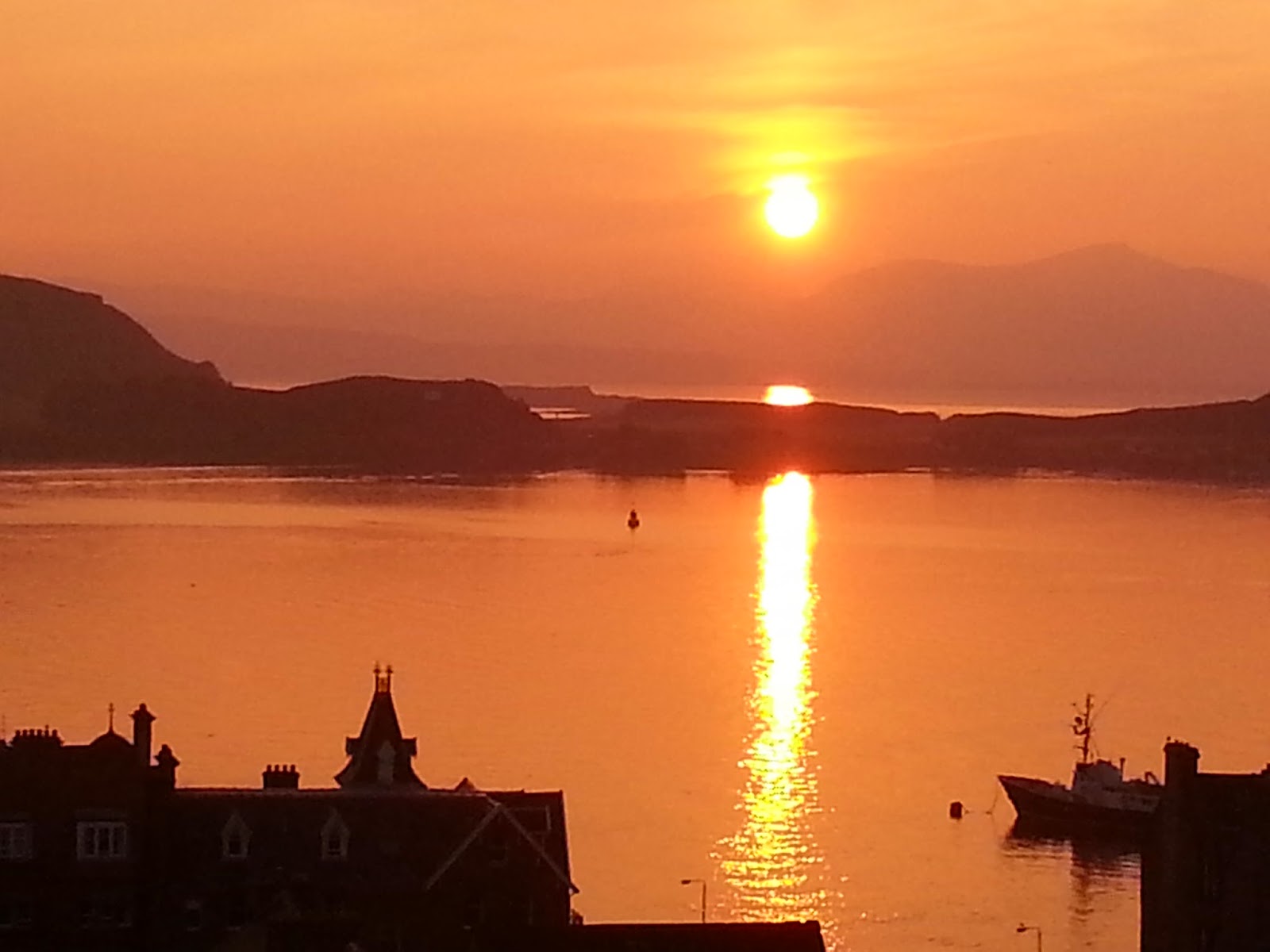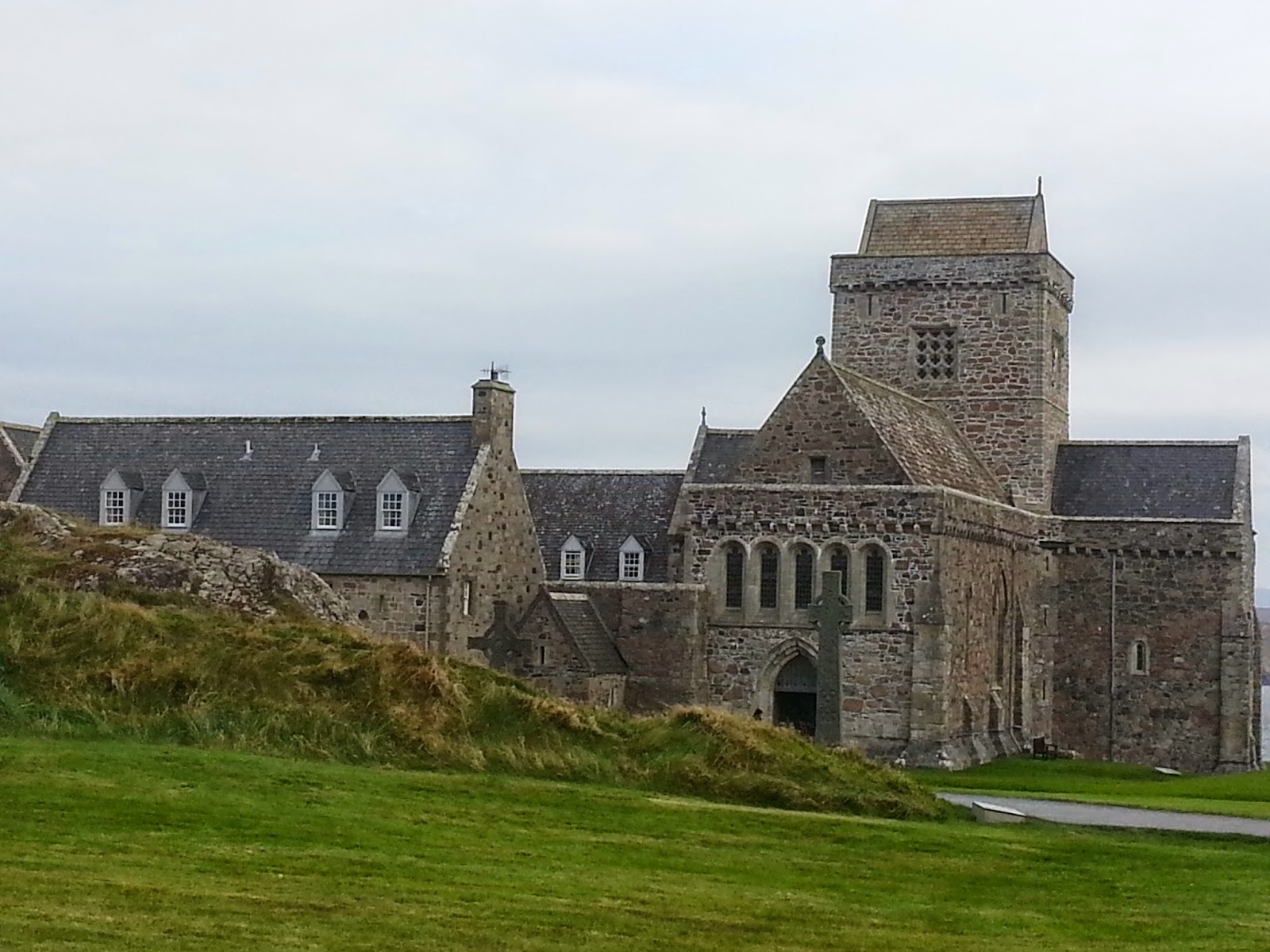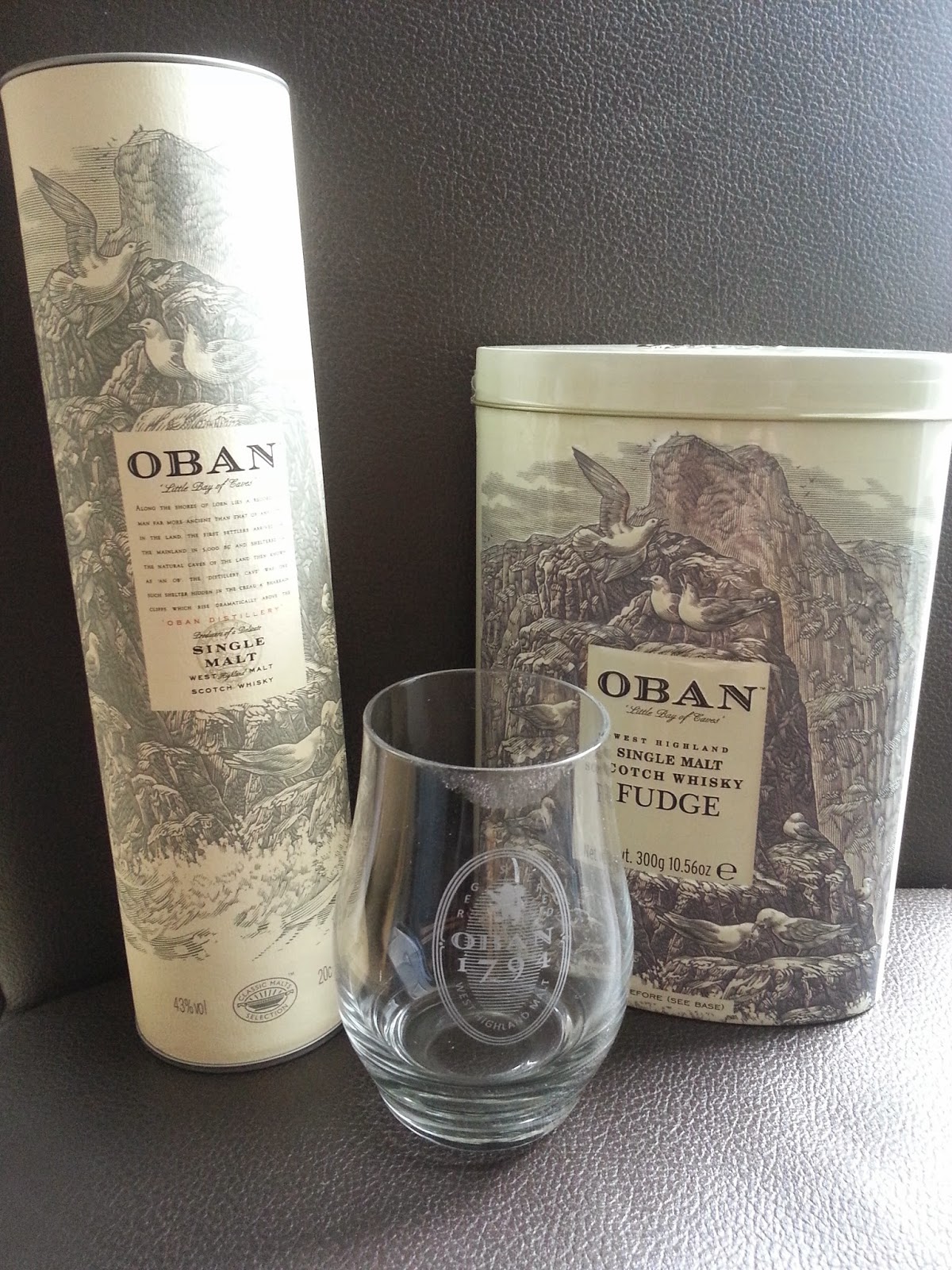I know there are some of my friends who absolutely love Glasgow, but truly, other than being sick in Edinburgh (over which I had little control), my biggest regret of this trip is that I didn't skip Glasgow and go straight to the Highlands. Of course, we would have lost the delightful vignette of me getting stuck in a dress, and of course, I can't change what I've already done on this trip, I can just plan my next trip more to my specific taste now that I've tasted a variety.
I could tell immediately when I crossed the border from England to Scotland, and I knew in an instant when I crossed into the Highlands, and I felt a wash of calm. This region as a whole just seems to do that to you, force you to breathe a little easier, walk a little slower, linger a little longer. No one is in a hurry, and nothing is so important that it can't wait for you to finish your drink (or your food, or your paper, or your nap).
I mentioned to the landlord in Inverness that I was going to run into town and do some shopping before my bus, and he said "We don't run in the Highlands. Unless it's for sport, and I don't see a rugby pitch outside my door. You walk, you stroll, you take your time, and you enjoy your shopping. There's plenty of time before your bus." That seems to be the prevailing attitude, and I love it. Clearly, Tolkien's Ents were Highland trees.
I have come to the conclusion that next time I come to the UK (whether or not it's still "U" after this week's vote), I will suck it up and rent a car. There were so many places I saw from the bus (or signs for nearby places) that I wanted to stop and see, and of course I was on a bus, so I couldn't. I made notes though, I have ideas for next time.
Inverness was absolutely lovely. It was calm and tranquil (except at the big public sports field, where some competitive games were gearing up), everyone was friendly and helpful, the local food was great, and the trails through the park along the River Ness were my kind of quiet paradise. The boat cruise (Jacobite Tours, if you're interested) was pretty reasonably priced, very scenic, and since it was a guided tour, full of little historical tidbits and local folklore.
The food! I've eaten well in the Highlands. In Inverness, I ate dinner both nights at a pub called Hootananny's, where they serve authentic Scottish food, stock local craft beers, and play (and have in live to play) local bands and musicians. I had a dish called Cullen Skink, which sounds kinda dreadful if you don't know what it is, but it's basically a very hearty creamy potato soup with smoked haddock (which, when smoked, tastes like bacon if you don't know that it's fish), and I liked it so much the first night that I went in and had it again the second.
The food in Oban is just as good, just in quite a different way.
When I arrived in Oban, my very first thought was that it reminded me of Mackinac, Michigan. Sound of gulls everywhere, ships and ferries and sailboats in the bay, shops all along the street in front of the piers, restaurants right out on the piers, people wearing shorts and sweaters and walking their dogs... It was a bit nostalgic, actually. It's a beautiful town, with much the same laid back feel as the rest of the Highlands.
The son of the landlady who owns my guest house recommended a restaurant shortly after I got in and tossed my stuff in my room. It turned out to be one of the restaurants on the pier, a place called Ee-Usk, award-winning, famous for their fresh seafood (well, the whole city is famous for seafood, as fishing, logging, and tourism are the big three industries in the western Highlands). I managed to get a table at Ee-Usk only because I was willing to eat early and most of their reservations were for 7:30 or later. I ordered a glass of Oban Scotch (it's my favourite anyway, and I'm across the street from the distillery, what else was I going to order?) and ate light for dinner because their dessert menu was so very enticing. That lemon cheesecake is hands-down the very best thing I ate on this trip, and I've had some really wonderful food. Cheesecake. Mmm. I left a full restaurant review on TripAdvisor (as I have for most places I've eaten and stayed over here), but this one perhaps got the most rave review, and the cheesecake and the friendly staff were the biggest factors.
The view from my room is spectacular. I can see most of the city center and a good deal of the bay, and it's a west view, so I get gorgeous sunsets on top of it.
I did go out to two of the islands, Mull and Iona (though I wish I'd just paid the extra bit and made it three Islands and seen Staffa too). Mull would be worth revisiting just so I can get out and walk the hills and wander down to the water in various places (not to mention the distilleries on the north of the island). Again, the nice thing about guided tours, you get little tidbits of information. Mull is home to between 3000 and 3500 residents... and 7000 red deer. The deer outnumber the human population 2-1. All sorts of wildlife on Mull besides the deer, they have otters, golden eagles, and sometimes play host to seals who like to come in and laze in a few places on the west coast. I saw a huge flock of Cormorants from the ferry to Iona, and several cranes both standing still and flying across some of the rocky inlets on Mull.
Interesting tidbit - When the event called the Highland Clearances occurred, in which the landlords decided they could put the land to better use if there were no farmers and villagers trying to work the land, the people of Mull had their homes and villages burned and were driven from the island. From a port on the northern side of the island, they sailed to Nova Scotia, where they kept Scottish traditions alive and thriving to the point that today there is more Gaelic spoken in Nova Scotia than there is in Scotland.
Iona is so unbelievably calm and slow, the winds should feel guilty for moving too fast across it. In one of the little cemeteries on the island (right next to the abbey), the youngest person buried there was 75; everyone else was either far into their 80s or well into their 90s, a few even older. They don't allow any cars on Iona unless the car belongs to a resident, and there are only between 90 and 300 residents on the island (90 permanent, the rest mostly during the height of tourist season to work the hotels and restaurants). In the end, I think Iona walked on the side of being far too tranquil for me, but considering that it was the home of a large abbey and a nunnery, it's no surprise that the snails pace is still a way of life there.
Back to Oban for one final day, and that day included the Oban Distillery. Oh did I choose the day to go! The tour began with a short video detailing the malting of the barley, pretty much the only part of the process not done at the distillery, and then we got to see the rest of the stages actually working. Oban still uses very dated equipment, and they will continue to do so, because some of the steps in their process just wouldn't work with newfangled equipment and would change the whiskey, and that just wouldn't do! They still use wood tanks to ferment the mash, and the ones they are using are already forty years old and should last another 40 if they're properly cared for. Unlike many larger distilleries that have up to 20 copper stills, Oban still only has 2 stills, and they are perfectly happy with the size of their operation. Only 7 men work in the distillery, and they do it in shifts, so only two at a time are every really there.
The entire tour was fascinating (and unlike with beer-making, which I find smells dreadful) the entire place smelled quite pleasant, actually. The very best part came just before the end. We all knew in advance that we were getting a free drum of Oban at the end of the tour, but when our guide walked us into the room where they fill the casks (I'll get to those, the casks themselves are really cool), we got to try a very special batch of Oban. It was an 11-year cask that, because it was tapped early and corked and uncorked so frequently, aged rapidly to something closer to a 30-year flavor. We only got a very small taste of that one because they only have one and a half bottles left (and it was never actually bottled, but last week they had to flip the cask over the get the last bit out, and this was it). I got to taste a one-of-a-kind Scotch that was definitely the very best I've ever tasted (and I like the standard 14-year Oban very much).
OK, the casks - if this sort of thing bores you, skip to the next paragraph (though if you've made it this far, you obviously have a pretty high tolerance for the less-than-riveting). So, American bourbon has to be aged in new oak casks, or it can't be called bourbon, and this means that a cask can never be used twice for bourbon. The makers of Oban have found that they don't like the taste of their whiskey out of new barrels, so they take the once-used ones off of Kentucky's hands. Oban may use a cask once or twice, and then it will be passed along to other distilleries that like older barrels. Those distilleries will get a use or two out of the casks before passing them to the companies that do the blended whiskeys. When there is no more whiskey to be got out of one of these barrels (in 100 years or so), the still have one last use - the vast majority of Scottish salmon is smoked over the wood from whiskey barrels. Our tour guide believes that the Scots invented recycling, because the distilleries waste nothing. They even recycle the heat from cooking the barley, by running cold water over the pipes to cool the batch for the yeast stage, and they then route the newly heated water into a barrel to be filtered and used to process the next batch of barley. And once the water has been separated from the barley mash, the mash has no more use for the distillers, so they sell it to farmers for cow feed. It's a wonderfully efficient process.
As I finish this post, I'm plotting a stop this evening at Ee-Usk to ask for cheesecake to-go. I'm telling you, nirvana with a graham cracker crust.






I'm really enjoying these blogs and pics. I feel like I'm getting to enjoy the trip a little bit too, albeit vicariously. I'll remember these tips for when I eventually get to make a similar trip.
ReplyDeletethat's very interesting about the distilleries and the recycling.